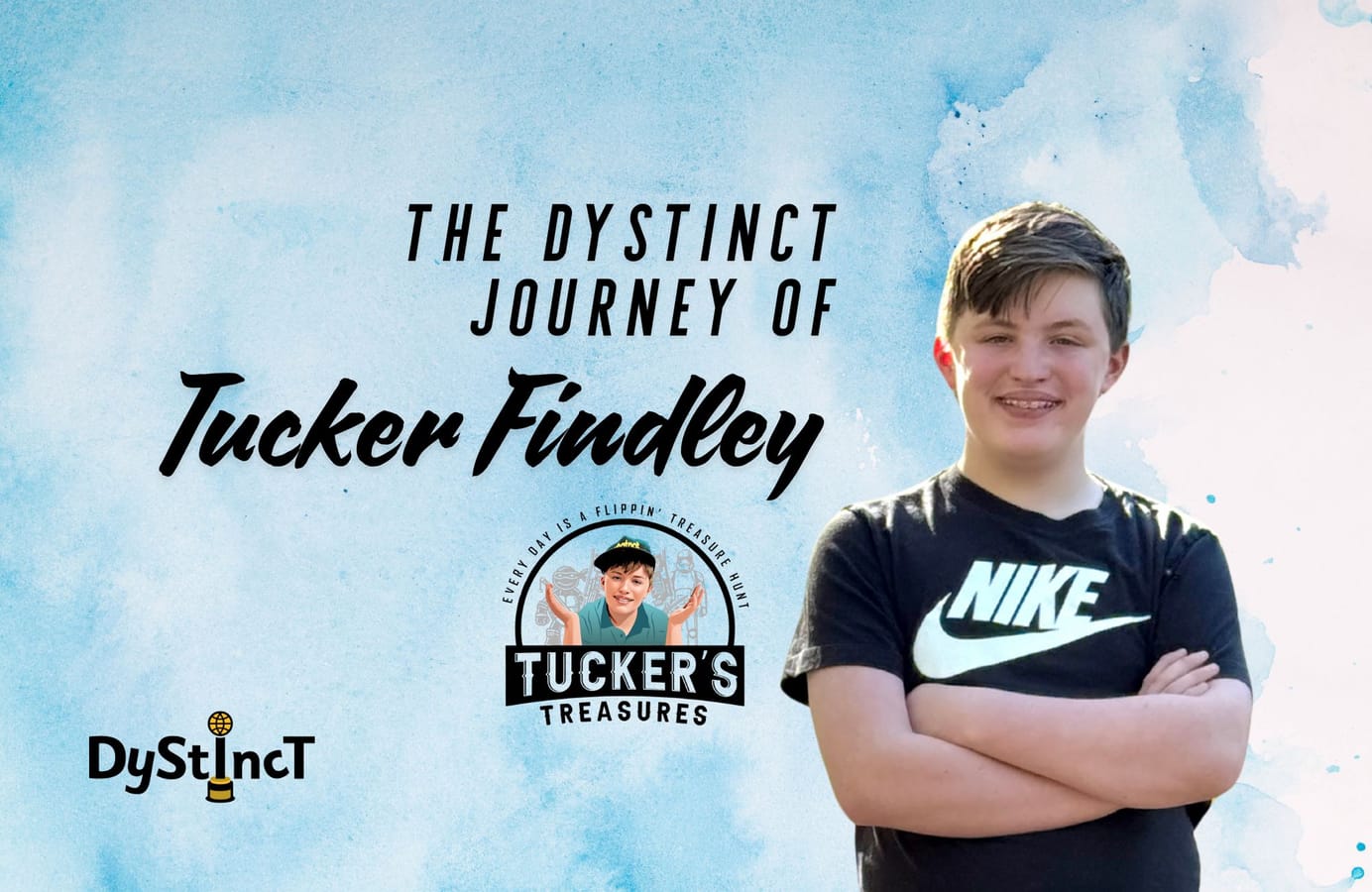
Issue 26: The Dystinct Journey of Tucker Findley | Tucker's Treasures
Tucker Findley, a teen entrepreneur with complex learning differences, his family, and his educator share their intertwined perspectives on transforming overwhelming academic challenges into a thriving business and a life built on confidence, purpose, and redefining what learning can look like.
Where school failed him, business lit the spark—Tucker found his flip side.
Tucker Findley doesn't quite fit the mould. At 15, he's already sold over 15,000 items online, runs a 2,500 sq ft resale operation, and manages his business alongside an employee who helps ship hundreds of items a day.
But it's not just the business that sets Tucker apart. It's how he got here —marked by steep learning challenges, a family that refused to give up, and an educator who helped build a school that fit him.
This is Tucker's journey, told by him, his parents, Ryan and Rebecca Findley, and Amy Oswalt, the educator who co-designed a learning model around his strengths.
Tucker's Perspective
Tucker's Perspective
"I've been reselling since I was 9," says Tucker. "I love finding value where other people don't. Where others see trash, I see treasure. Every day is a flipping treasure hunt."
Tucker's elevator pitch goes something like this: "Hi, my name is Tucker. I'm the owner and founder of Tucker's Treasures, an online sales business that sells some of the coolest collectibles and treasures on the planet. If you've got too much stuff—talk to me."
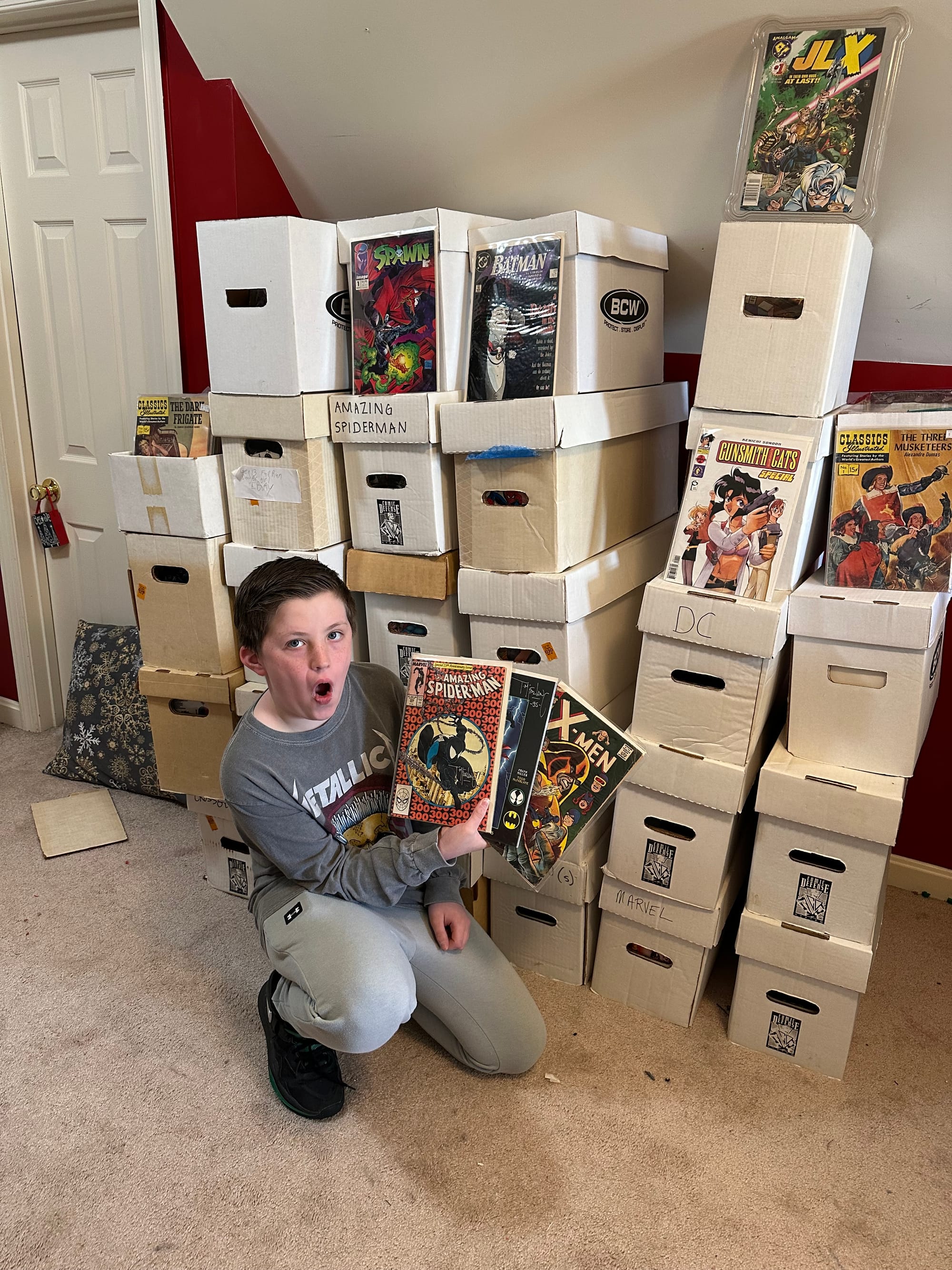
His journey began with a simple idea and a bunch of muddy golf balls. He found them by the river, cleaned and sorted them, and then listed them on Facebook. There was a line out the door. That first sale sparked something big. From there, he built Tucker's Treasures—an online business that has now become both his passion and his education.
"What's nice about owning your own business is you get to pick what you do every day and what you want to focus on," he explains. "I have people who help me with things I'm not as good at or just don't want to do, so I can focus on what I really love: finding new inventory and matching it with buyers."
What's nice about owning your own business is you get to pick what you do every day and what you want to focus on.
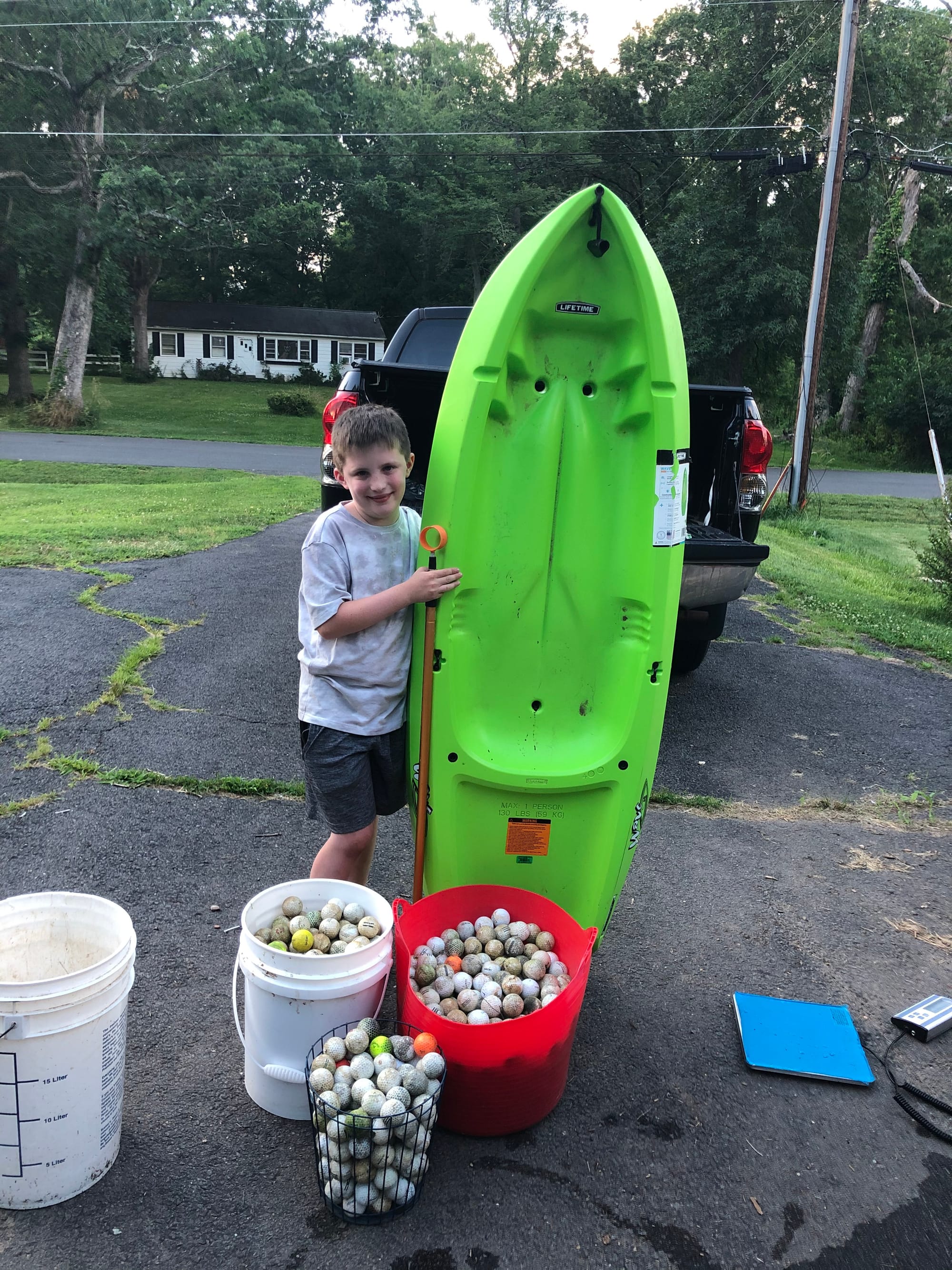
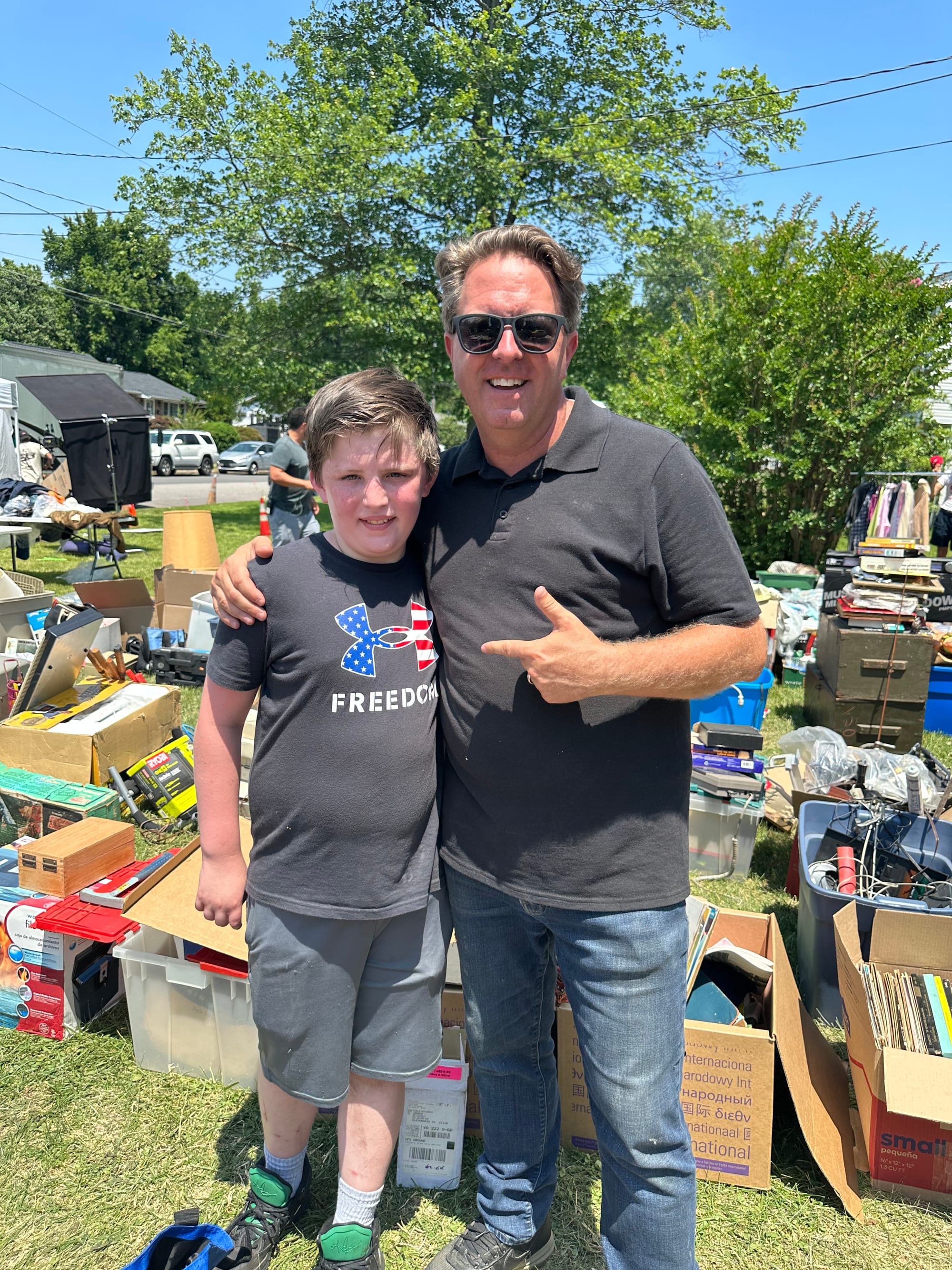
Most weekends, Tucker's up at 4 a.m., off to the flea market. "I spend the morning buying stuff and networking with other sellers. Then I organise what I bought or hang out with my friends, riding bikes or fishing." On weekdays, he attends school but not in the traditional sense. Tucker is enrolled at Conduit Academy, an online program designed to support students like him for about 1.5 hours a day. He also joins virtual clubs once or twice a week to connect with other learners. The rest of his time? "I'm constantly buying and selling," he says. "It might be listing on eBay, prepping Whatnot auctions, meeting with my dad to track inventory, or talking to Zak, my shipping guy."
I learn best—through things I actually care about.
As for school and business: "My business is my school, and Conduit Academy helps me with my business," he says. "Math is related to profit margins. Writing is product descriptions. Speeches help me sell better. "Take a coin I'm selling, for example. I learn all about the year it was made, the place, and the history behind it. That's how I learn best, through things I actually care about." School used to be a nightmare. "When you have a speech disorder and can't speak well, AND can't read and can't write, you're going to be a failure in public school," he says bluntly. "I used to feel completely lost," he adds. "It felt like I had to pretend to learn just to please people. I couldn't keep up. I never thought I'd feel smart." But that's changed. "Now I'm confident. I know I'm good at something."
The shift in how he learns has made all the difference. "This is learning on demand. It's 100% better. Everyone learns differently, and I learn through experience. A classroom would just waste my time." "Now, I don't even see the point of being in a traditional classroom. It doesn't help me do what I want to do," he says. "I have too many things I want to learn, and real learning comes from real experiences."
And while many kids struggle with public speaking, Tucker has learned to thrive during live-stream auctions on Whatnot, interacting with hundreds of people in real-time. "I've learned to manage my emotions, use my words, and solve problems on the spot," he says. "It's helped my reading, writing, and speaking more than anything else." The coolest part? "Meeting people and learning their stories. I even found my dog, Todd, during a pick."
Asked what he'd say to someone who thinks learning disabilities prevent success, he says, "Five or six years ago, I probably would have agreed with them. Now, I'd laugh. Your opinion and my learning disabilities fuel my success, not prevent it."
Tucker plans to keep growing his business. "What I'm really good at is finding value—so why would I stop? I don't have a master plan, just one step at a time. As long as I'm learning and building relationships, I'll keep moving forward."
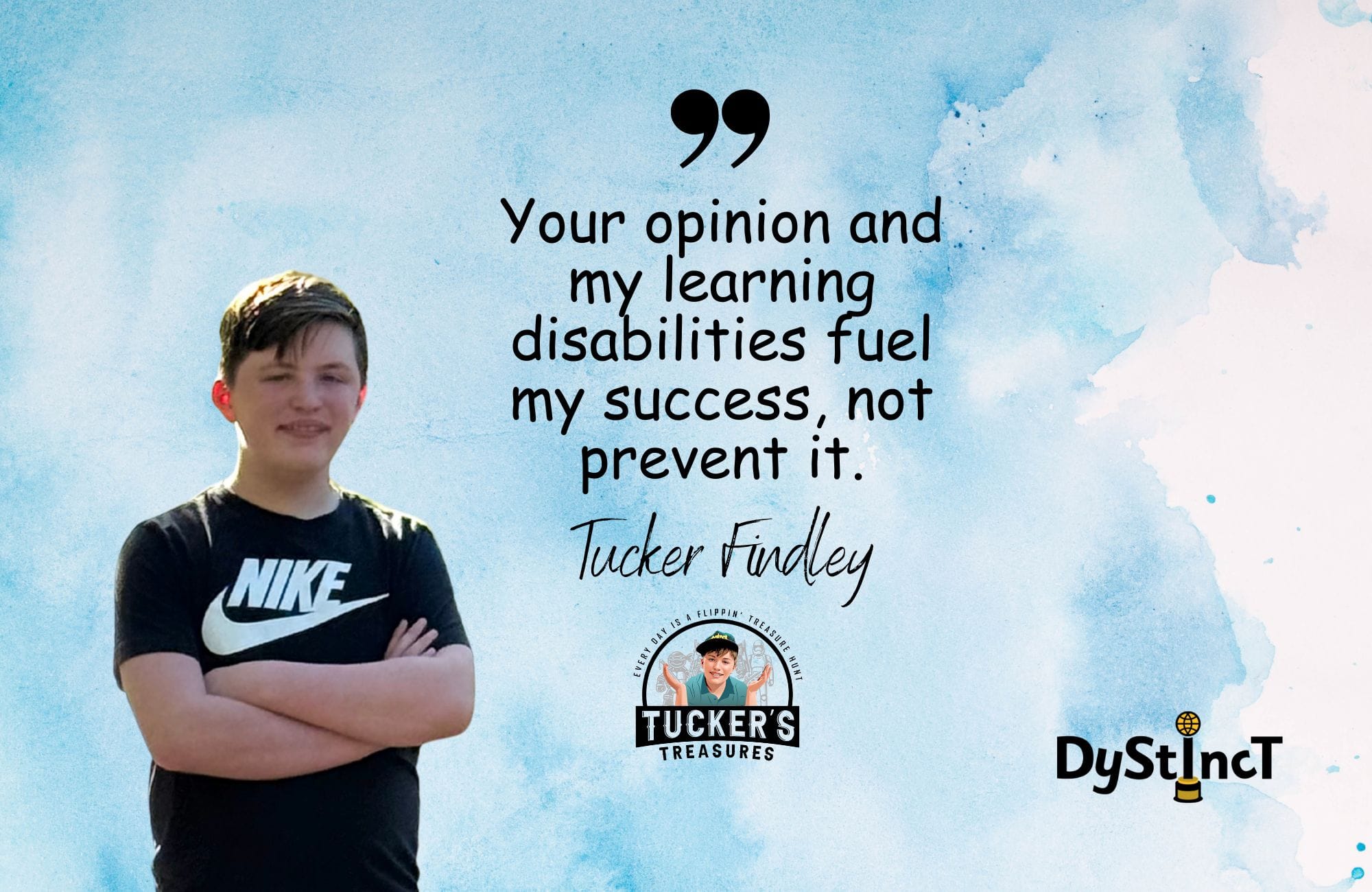
Parent's Perspective
Rebecca & Ryan Findley
Parent's Perspective
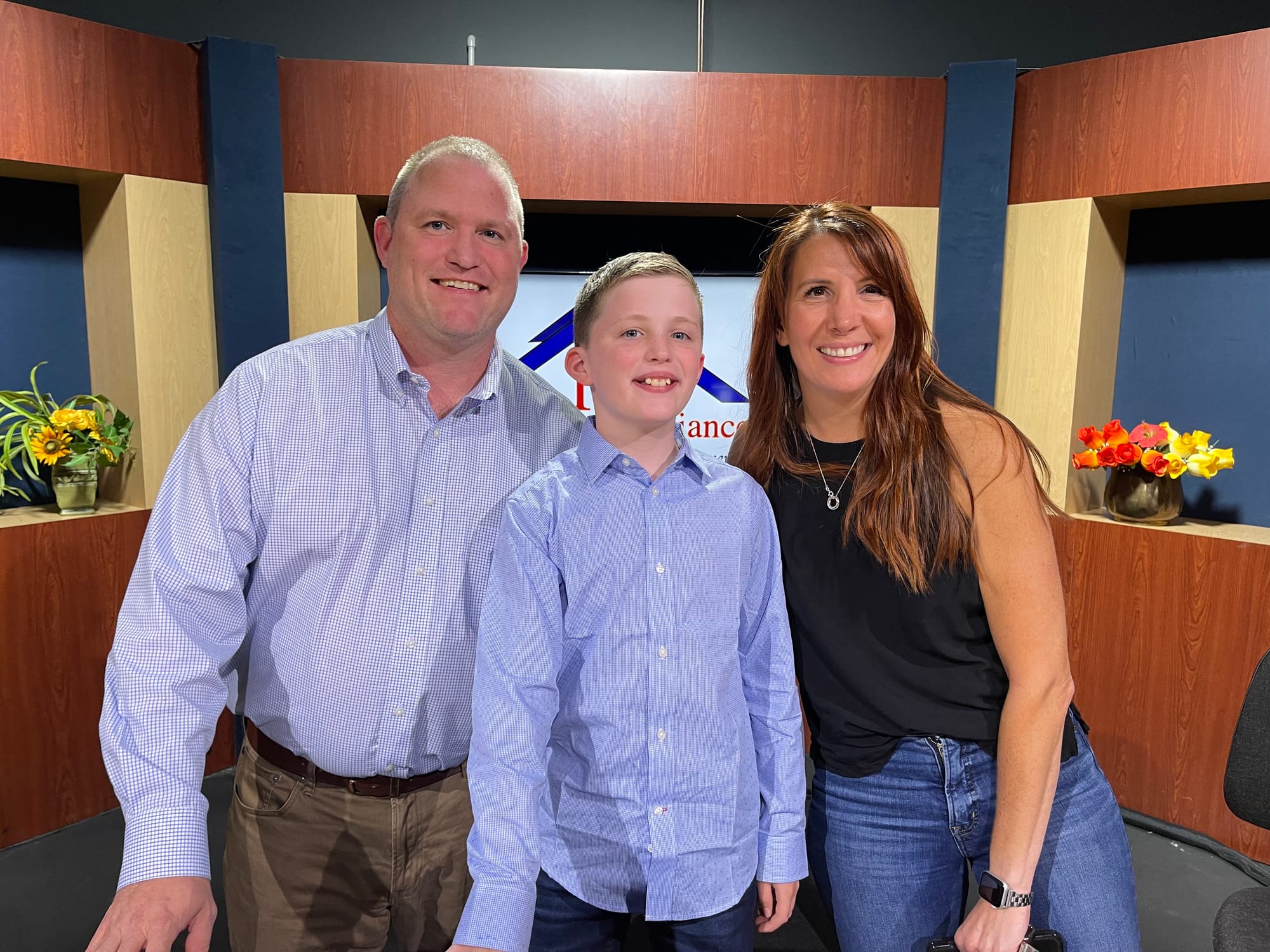
At five, they pushed again and finally received a diagnosis: a developmental delay in speech. He entered kindergarten with an IEP and repeated the year for extra support. Still, by third grade, he couldn't count past ten, recite the alphabet, or read a stop sign. "We knew something was really wrong," his parents say. "But everyone around us kept saying he was progressing." But deep down, they knew he wasn't.
We knew something was really wrong, but everyone around us kept saying he was progressing. But deep down, we knew he wasn't.
School reports painted a misleading picture, listing him in the 40th percentile for reading, but private evaluations told another story. Tucker was facing a complex, overlapping web of diagnoses: double dyslexia, dysgraphia, dyscalculia, phonological processing disorder, apraxia, ADHD, DMDD, and extremely low working memory.
"Tucker's working memory was in the bottom one percentile," his parents explain. "He's able to put lots of information into his long-term memory, but accessing it is difficult. His active working memory is incredibly low, meaning it's very hard for him to demonstrate or get out the information that he knows in a logical and concise manner."
It was going to take a team to peel back the layers and find the Tucker we knew was there.
He reversed letters, numbers, and even images. For example, his parents recall showing him two pictures of a truck, one facing left and the other right. To Tucker, they looked the same. He couldn't tell the difference in direction. Phonological memory challenges made decoding nearly impossible. His speech, impacted by apraxia, remained inconsistent. "Where are you?" would come out as "Where you are." Writing his name, using tools, tying his shoes, catching a ball—things other kids mastered easily were daily struggles for him.
His difficulties weren't isolated; they compounded. "Most people and systems can handle one or two challenges," they explain. "But when the hits come from every side, it's like you're underwater and can't find a foothold to push up. That's where Tucker was," they explain. "It was going to take a team to peel back the layers and find the Tucker we knew was there. We used to call it Team Tucker."
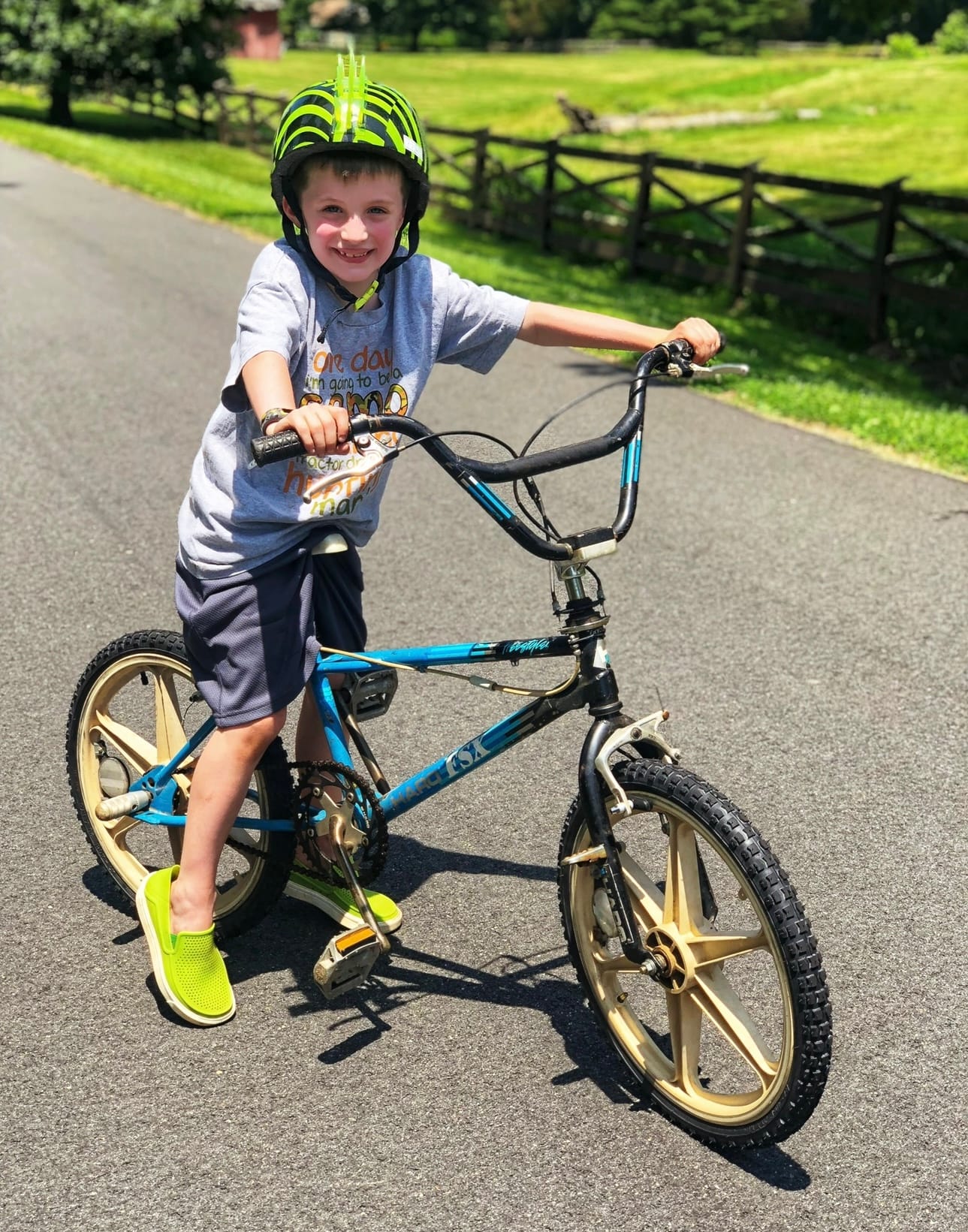
Despite years of accommodations and early intervention, Tucker's progress stalled. "We brought in tutors, specialists, advocates, even a neurologist," they explain. "The professionals all said the same thing: in decades of special education, they'd never seen a learning profile this complex." His IQ scores were so low that the school asked if he could feed himself or avoid touching hot stoves. And yet, his parents never believed those numbers told the full story. "We knew our son," they say. "Those scores didn't define him. He was in there. We just had to find a way to reach him."
By the time he was nine, the emotional toll had become unbearable. "Tucker wasn't just behind, he had nothing in his life that made him feel good about himself," his parents say. "There was nothing to hold on to." The pressure boiled over when the school called to say he had made serious self-harm threats. The police had been involved. He couldn't return without a doctor's clearance. "He came home and said, 'If dying means I don't have to go back to school, I'm okay with it.'" What followed was devastating. "He screamed, cried, hit the punching bag for half an hour straight," his mum recalls. "He said he was the dumbest person in the world. He hit himself in the head over and over. I curled up on the floor with him, and we both cried."
We knew our son. Those scores didn't define him. He was in there. We just had to find a way to reach him.
One doctor told them, "Everyone has baggage, but Tucker's was a lifetime's worth of hurt, fear and rage by age nine." His mum remembers thinking, How did it get this bad so fast? What did we miss? What did we do wrong? "This wasn't a scrape on the knee I could kiss and make better," she says. They had exhausted every avenue: specialists, advocates, and private schools. "Even the schools that catered to learning disabilities said he was too far behind," they say. "No one would take him." Every day, he melted down, hitting himself, calling himself stupid, unable to do what other kids did with ease.
This wasn't a scrape on the knee I could kiss and make better.
This post is for paying subscribers only
SubscribeAlready have an account? Log in


